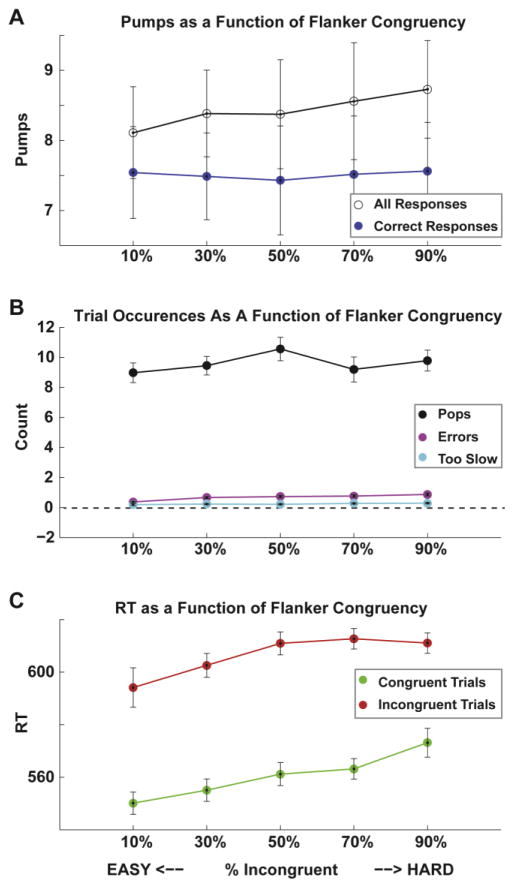Figure 5.
Experiment II performance A. Average number of pumps as a function of the percentage of incongruent flankers. There was a (significant) positive relationship between the number of pumps and the percent of incongruent flankers. However this disappeared when error trials were removed. Again, B. Errors and too-slow trials both increased with the proportion-incongruent manipulation, but the number of pops experienced was unrelated to this manipulation. C. Congruent and incongruent trial reaction times both increased with the proportion-incongruent manipulation.

